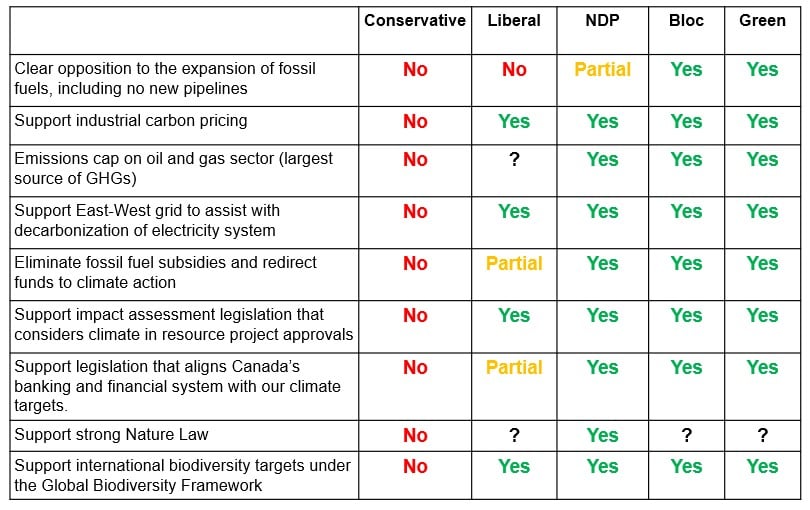Veracruz, México. June 12, 2023. A group of scientists on board a Greenpeace ship in Mexico’s waters has concluded research on a never-before studied coral reef, threatened by a planned gas pipeline by Canadian company TC Energy. Scientists, joined by fishers and activists from Greenpeace Mexico on board the Arctic Sunrise, have warned that the pipeline would threaten the livelihoods of local fisher communities and the survival of rich biodiversity.
Guadalupe Cobos, inhabitant of El Bosque in Tabasco: “We are the first climate-displaced community in Mexico. We are still waiting to be relocated by the Mexican government. Today we are here to say that we do not want this to continue happening in more communities. We don’t need another pipeline! We don’t need more fossil infrastructure!”
Over the past two weeks, scientists from the University of Veracruz, the NGO Colectivo Interdisciplinario de Ciencia Aplicada y Derecho Ambiental (CICADA) and Greenpeace Mexico have documented and studied coral reefs in a never before studied area in the northern and central part of Veracruz, Mexico that needs to be protected. TC Energy is planning to build the Puerta al Sureste pipeline through the area. The research utilized a NEMO submarine that descends 100 meters (328 feet) deep and a BoxFish underwater drone to reveal an interconnected and delicate ecosystem that is rich in biodiversity, including wire coral (Stichopathes luetkeni), black coral (Antipathes sp.), angel fish (Chaetodon ocellatus), French angelfish (Pomacanthus paru), Porkfish (Anisotremus virginicus) and some other species that have yet to be identified.
Dr. Bello, researcher on board of the Arctic Sunrise: “The Mesophotic Reef Ecosystems (EAM) are of great importance since they are the refuge of fish and other species, in addition to allowing us to face climate change, for this reason these ecosystems must be formally protected by the mexican authorities”
These reefs would be extremely vulnerable to any potential gas leak or explosion if the construction of the pipeline goes ahead. Disasters similar to the Eye of Fire, an accident in which a gas leak from a Pemex underwater pipeline set the Gulf of Mexico ablaze in 2021, are part of the gas industry. They happen wherever fossil fuels expand at nature’s expense.
Plans for the new pipeline by TC Energy, one of Canada’s largest fossil fuel companies, could jeopardize fishing communities in Mexico. More than 70,000 people depend on fishing for their livelihoods, and therefore depend on a healthy marine ecosystem. The plans potentially threaten the Carrizo Comecrudo Tribe in Texas, where fracked gas for the pipeline is produced and reportedly causes increased respiratory diseases and cancer and infringes on Indigenous lands.
Other communities in the Gulf of Mexico already suffer impacts of the climate crisis, including displacement of people in El Bosque due to rising sea levels, and those in Tabasco and Las Barrancas who are on a similar trajectory.
Laura Ullmann, Greenpeace Canada Head of Climate: “In Canada, TC Energy’s Coastal Gas Link pipeline construction is devastating previously clear rivers in which salmon spawned, polluting the drinking water and destroying the food sources of the local Indigenous communities and everyone downstream. The new discoveries show yet another area TC Energy is willing to destroy in the name of their own profit.”
The TC Energy pipeline is not only expected to sacrifice communities in Texas and Veracruz, but to continue to contribute to methane emissions. According to the International Energy Agency (IEA) and the UN Environment Programme (UNEP), any new fossil fuel project is not in line with the narrowing path to keep the planet under the 1.5c (34.7F) warming threshold.
John Noël, Greenpeace USA Climate Campaign Manager said: “From explosions at Texas oil plants and gas terminals to leaks along existing pipeline routes, where oil and gas companies go, the destruction of our air, land, and water usually follows. The communities where the oil and gas is extracted, transported, and burned carry the heaviest burden on their health and wellbeing with increased rates of cancer and lung disease. Globally, the unhinged expansion of oil and gas production in the U.S. is sprinting us towards a breaking point for a livable future. The Permian Basin in Southwest Texas and New Mexico, where much of the gas for the Puerta al Sureste pipeline could come from, could consume nearly 10% of the remaining carbon budget for staying under 1.5 C.”
Greenpeace Mexico is inviting people in Mexico and the USA to sign a petition to stop this pipeline both in English and in Spanish.
ENDS
Photos and videos available HERE. Credit line: Ivan Castaneira / Greenpeace
Press contact
| In the USA Tyler Kruse Senior comms officer +1 808 741 2791 [email protected] | In Mexico Dana Olguín Comms and media officer +52 1 55 4964 5357 [email protected] | In Canada Laura Bergamo Head of Media + 1 438 928 5237 [email protected] |
NOTE: If there’s interest in this news, please direct media to:
Jennifer Wickham,
Media Coordinator, Gidim’ten Checkpoint
778-210-0067



